FFF INCLUSIVE EDUCATION PROJECT
Inclusive education is a process of making education more accessible to all children of school age, irrespective of their socio-economic status, disabilities, race, ethnic or cultural background and gender. Inclusive education is also the process of increasing the participation of students in, and reducing their exclusion from, the curricula, cultures and communities of local schools.
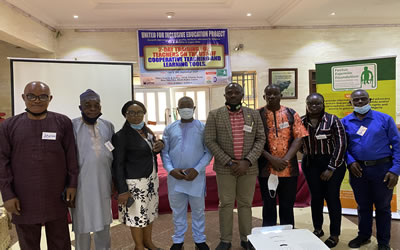
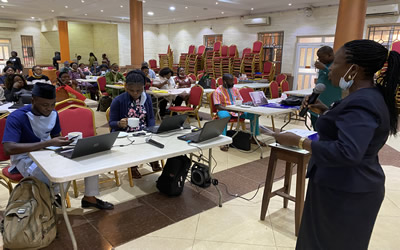
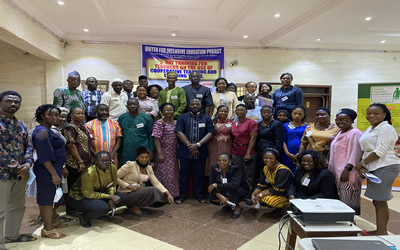
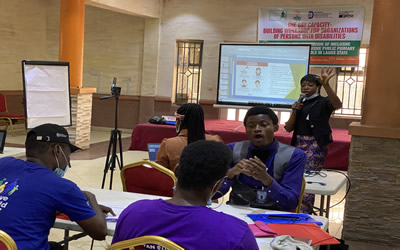
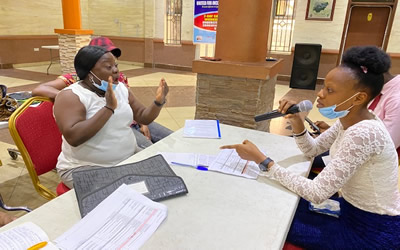
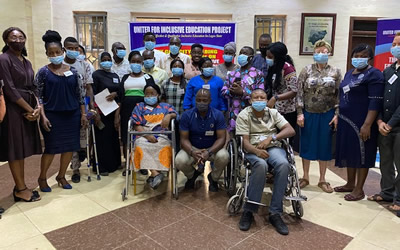
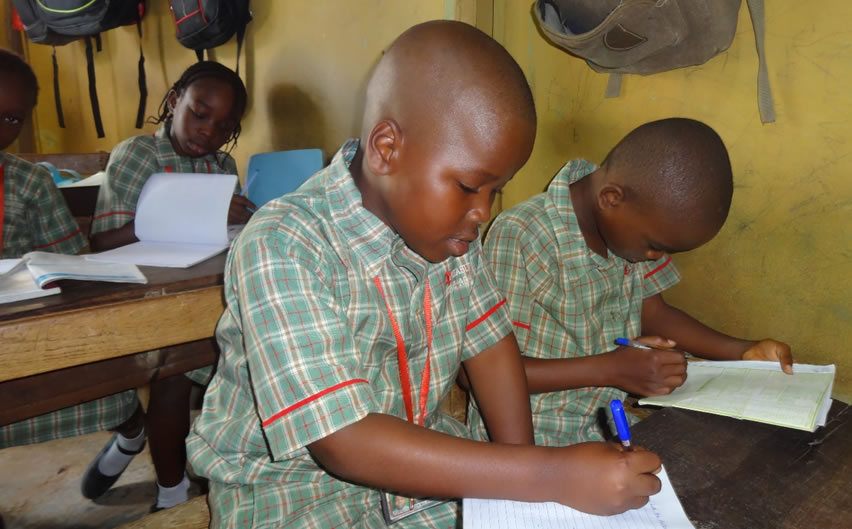
Festus Fajemilo Foundation interest in inclusive education stemmed form the annual “we ring the bell” (WRTB)awareness/advocacy campaign which seeks to enlist the support of school children and other stakeholders to advocate for the inclusion of children with disabilities in school system. WRTB campaign is done in conjunction with Liliane Foundation Netherlands and other partner organizations in Nigeria. WRTB concept recognizes the fact that 9 out of 10 children with a disability are not welcome to school. This is even though countries have mutually agreed “that it should be possible for all children to go to school no matter what. So, this includes children with a disability. But, precisely, this vulnerable group is commonly left behind at home. And if we don’t act, will also be left behind in life. WRTB therefore is to sound the “alarm bell” to say ALL
CHILDREN ARE WELCOME TO SCHOOL, INCLUDING CHILDREN WITH A DISABILITY.
In line with our strategic objective to support development and strengthening of relevant legal and policy frameworks which respond to the rights and well-being of persons with SBH and other forms of disabilities, FFF engaged in strategic partnership in 2019 with the Ministry of education, Lagos state and Lagos state universal basic education board to support the state government in strengthening the state’s inclusive education policy through an innovative “Cooperative Teaching” approach.
Between June and July 2020, an assessment of the implementation of the Lagos State Inclusive Education Policy and the mapping of the 44 public inclusive primary and secondary schools by FFF which was funded by Liliane Foundation, Netherlands, indicated that one of the reasons for the high population of out-of-school CWDs in Lagos State is the significantly insufficient number of special teachers and other trained personnel required to support the implementation of inclusive education. This study also revealed that regular teachers in the 44 public inclusive schools lack relevant capacity to collaborate with special teachers in the inclusive education process and there are no documented standard operating procedures to facilitate such collaboration which has made the delivery of inclusive education very difficult and less impactful as the few available special teachers are virtually overstretched and unproductive. To access the full report, click the link Final – Report on School Assessment and Mapping .pdf
Unfortunately, none of the 5 tertiary education institutions in Lagos state provides any teacher training programmes in special/inclusive education. In addition, there are very few teacher training tertiary education institutions in Nigeria which provide course programmes in special education. This makes it very difficult to find qualified special education practitioners to meet the huge demand for special teachers and other required specialists to serve the growing population of children with disabilities in Lagos State.
In response to the persistent shortage of human resources to implement the inclusive education program in Lagos State, FFF, in partnership with the Daughters of Charity and the Lagos State Chapter of the Joint National Association of Persons with Disabilities (JONAPWD) had developed a 4-year intervention project in November 2019. The aim of the project was to develop a Cooperative Teaching Manual for the 44 inclusive schools with a view to facilitating innovative methods of collaboration between special and regular teachers in the delivery of inclusive education. This initiative was intended to make better use of the available human resources in order to increase enrolment of CWDs and improve their learning outcomes.
Project Goal:
The goal of this project is to achieve significant reduction in the population of out-of-school CWDs in Lagos State through improvement in the delivery of public inclusive education in the 44 public inclusive schools by 2023.
Objectives:
The key objectives of this intervention include—
- To strengthen the capacity of special and regular teachers for the delivery of cooperative teaching and other inclusive practices in the 44 inclusive schools.
- To facilitate the development of a Cooperative Teaching Manual to guide cooperative teaching in the 44 inclusive schools.
- To facilitate the enrolment of out of school children with disabilities in the inclusive schools.
- To facilitate more inclusion of disabled people’s organizations in the monitoring of CWDs enrolment, learning outcomes and inclusive practices in the 44 public inclusive schools.
- To facilitate strategic advocacy for government’s support and funding for the provision of special/inclusive education course programs in the 5 tertiary education institutions in Lagos State with a view to increasing number of special teachers and other relevant professionals in the 44 inclusive schools.
Expected Outcomes:
- There is reasonable reduction in the drop-out rate of children with disabilities in the inclusive schools.
- Standard operating procedures are in place across all the inclusive schools in Lagos State.
- 680 or more children with disabilities enrol in the public inclusive schools on annual basis
- Project will contribute significantly to the attainment of UNCRPD article 24 and Goal 4 of the SDG.
Target Beneficiaries:
The project will be directly beneficial to the following —2 million PWDS which make up the 12 DPOs, 50 special teachers, 100 regular teachers, 60 school Supervisors, 660 members of the School Based Management Committees (SBMC) in the 44 inclusive schools, and 10 education-focused CSOs. The project will indirectly benefit— 10,000 CWDs currently enrolled in the 44 public inclusive schools and other private schools in Lagos State, the estimated 200,000 out-of-school CWDs in Lagos State, all the special and regular teachers who are currently employed by the Lagos State government, as well as State and non-State actors/stakeholders in education sector of 6 states in Southwest of Nigeria.
FFF is open to more partnership and collaborations in the journey to actualize the above goal.
